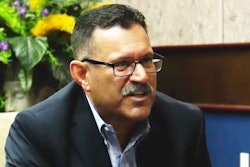
The Federal Motor Carrier Safety Administration has canceled a study meant to gauge the safety aspects of allowing truck drivers to split their on- and off-duty time into segments. The agency’s new — and pressing — move to propose changes to hours of service regulations has rendered the study moot, according to sources familiar with the agency’s decision, including a senior official at FMCSA.
David Heller, vice president of regulatory affairs for the Truckload Carriers Association, said a high-level official at the agency told him in late October that the study had been nixed. The FMCSA official said then that the “study is no longer needed,” Heller says, because of the advanced notice of proposed rulemaking (ANPRM) published in August that sought feedback on ways to potentially reform hours of service regulations.
The study has been in the works for several years, and a pilot program was scheduled to begin this year. Researchers hoped to study 200 truck drivers operating in real-world conditions, with some of them abiding by current hours of service regulations and some operating under rules that allow them to split their 10-hour off-duty period into segments of 5-5, 6-4 and 7-3. Current hours of service regs only allow for rolling splits where the longest period is at least eight hours.

“The administration wants to fast track any changes to hours of service,” Heller said. FMCSA Administrator Ray Martinez used the same “fast track” phrasing in August. As Overdrive previously suggested in reporting, Heller said a proposed rule is expected to be published within the first few months of 2019 — much quicker than the study’s results could be obtained.
A senior official at FMCSA confirmed that the agency has “pulled the plug” on the study, saying it wouldn’t be finished in time to provide any insight into the agency’s proposal to alter hours of service regulations.
Heller also pointed out that the website that the agency was using to promote the study and provide updates, sleeperberthstudy.com, is no longer active.
Trucker Bob Stanton noted that, among those likely to challenge any shift in hours of service, the study held the potential to help tamp down criticism, particularly from crash victims’ advocates, of the perceived “lack of data to support the proposed changes.”
Such advocates, Stanton added, have “said they would litigate without research to support the changes.”
FMCSA published its ANPRM in late August and solicited feedback for 45 days on how and why it should make any changes to the existing HOS rule. The agency received roughly 5,200 comments on the ANPRM. Adding split-sleeper berth options to hours of service regs and in other ways changing how the split works is among hours revisions proffered by groups in petitions highlighted in the agency’s ANPRM.











